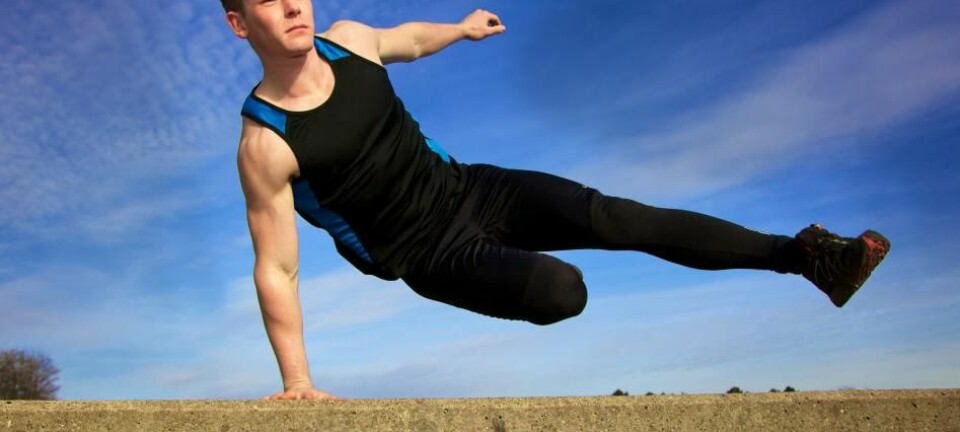
Physical activity has little impact on weight
Higher levels of physical activity do not protect against weight gain, according to a new study.
We need effective weapons in the fight against overweight and obesity.
Increasing people's activity level is recommended in many countries, and the World Health Organization has stated in its Global Recommendations on Physical Activity for Health that physical activity “is fundamental to energy balance and weight control.”
Helsenorge.no, the public health portal for residents in Norway, writes that:
“Regular physical activity – at least 30 minutes of moderate intensity per day – reduces the risk of overweight and obesity. More activity probably has an even greater effect on the risk of overweight and obesity.”
But despite the fact that this seems quite logical, the research on weight and physical activity is far from undisputed.
Found no correlation
Many studies have shown that more exercise is not especially effective for reducing weight. It is also not likely that the population-level weight increase is due to inactivity.
Some studies even hint that we don’t burn more calories by increasing our activity level. And this month, another piece of the puzzle has been added to the mix.
An international group of researchers have measured activity levels in five groups of people. Then they examined what impact their activity has on the tendency to gain weight over time.
The researchers found no correlation between how active people were and how much weight they gained.
“This wasn’t a complete surprise,” says Professor Ulf Ekelund of the Norwegian School of Sport Sciences, and one of the researchers involved in the project.
“Previous studies have also shown that the relationship between physical activity and change in weight is weak, if it exists at all,” he says.
Five different countries
The study involved almost 2,000 young adults of predominantly African descent from five different countries: Ghana, South Africa, Jamaica, Seychelles and the United States.
Researchers wanted to examine the relationship among people of similar ethnicity who represented a broad range of social and economic development, lifestyles and environments.
At the beginning of the study, participants wore activity monitors for seven days. Afterwards researchers followed them over a two-year period and measured participants’ weight and registered any diseases or major weight-loss attempts. Participants who were HIV-positive, pregnant or voluntarily losing weight were excluded from the study.
After two years, researchers compared weight developments with the participants’ initial activity levels.
Activity didn’t help
It turned out that all the groups experienced weight increases except the Jamaican women. Weight gain was greatest in the groups from less-developed countries. Participants from Ghana and South Africa gained approximately 1.5 kilograms on average, while the Americans only went up by a few grams.
The activity level at the start of the study did not appear to have any impact on the tendency to put on weight in subsequent years. Nor did it appear that greater activity levels protected participants from weight gain or that more sedentary behaviour increased the risk of gaining weight.
This was true both within each country and when researchers compiled results from all the groups.
Normal weight participants gained more
When the researchers compared the participants within each country, they also noticed an interesting tendency: participants who initially met the recommendations for at least 30 minutes of physical activity a day, seemed to gain more weight than those who moved too little.
In each country, weight gain in normal weight participants tended to be greater than in those who were overweight or obese.
According to Ekelund, this is probably because it’s difficult for someone who’s already overweight or obese to gain even more weight. Or it could be because overweight or obese participants were more concerned with trying to keep their weight down.
Physical activity is still healthy
This study joins a number of studies suggesting that a higher level of activity does not protect against future overweight and obesity, the researchers report in the science journal PeerJ.
Earlier research from Norway has shown that physical activity does not appear to play any role in weight gain risk over time, says Ekelund.
He believes the combined results show that the correlation between physical activity and weight change is weak, and that people's weight and BMI are determined by many factors other than physical activity, such as food consumption.
Yet it is good to remember that the new study has its limitations, too.
The study was carried out with a limited group of people, and the results could be different in other ethnic groups.
The researchers did not measure any changes in activity patterns during the study period. However, Ekelund believes that one measurement is sufficient to reveal clear links between physical activity and weight.
Experience from other surveys, such as the relationship between activity and blood pressure or insulin levels, suggests that one week of objectively measured activity is enough, he says.
Ekelund stresses, however, that physical activity is still very important for health.
“Even though there isn’t a strong link to weight, physical activity is perhaps the most important lifestyle factor in preventing other health problems, such as diabetes, hypertension and premature death in general. It has tremendous significance,” he says.
The results therefore don’t give you an excuse to be a couch potato.
But when it comes to the fight against overweight and obesity, it may be that we should employ other weapons than more physical activity.
-------------------------------------
Read the Norwegian version of this article at forskning.no
































